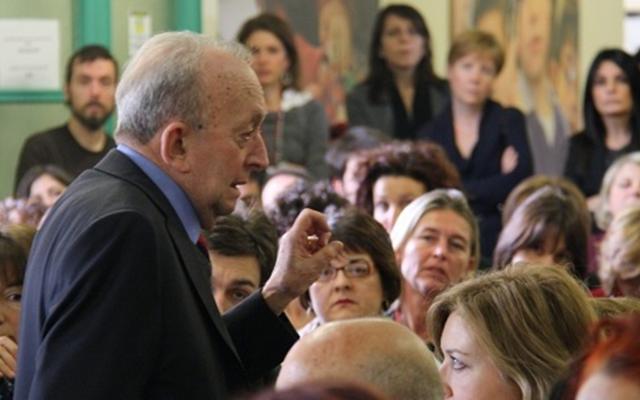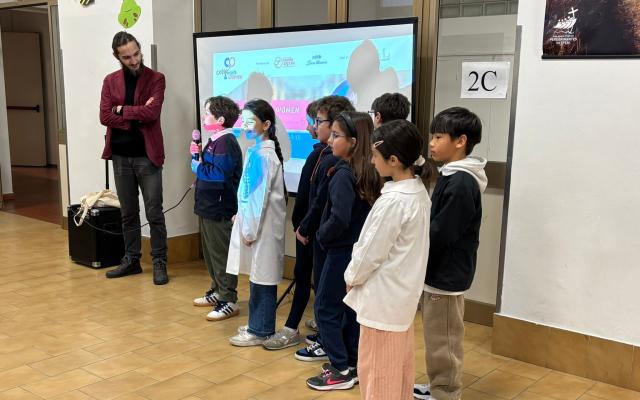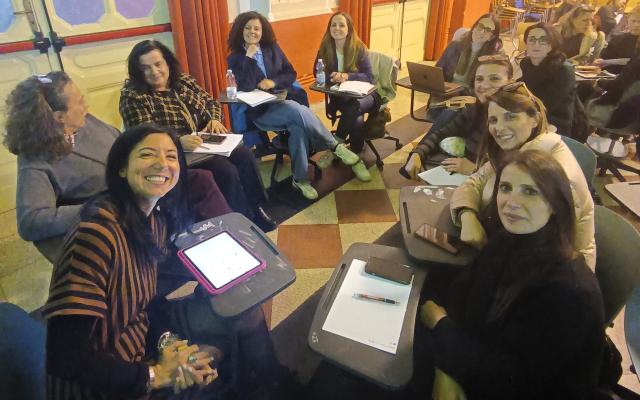On 25 September 2015, the UN adopted the 2030 Agenda for Sustainable Development. Ten years later, the global balance sheet shows both positive and negative aspects. In Italy, according to the latest ASviS Report, 9 out of 17 Goals show a negative or stagnant trend: indicators on climate, biodiversity, water, inequalities and democratic participation are worsening. Yet it is not too late: transformative policies, forward-looking investments and courageous choices are needed. It is with this in mind that the Fondazione Mondo Digitale confirms its commitment to transforming social and technological innovation into a driver of sustainable development.
The 2024 Social Report clearly shows the contribution made to numerous Sustainable Development Goals (SDGs). Thanks to projects carried out in partnership with large companies, the Foundation is taking concrete action on several fronts. The stories we tell every day on our website testify to the transformative impact of our actions: young people finding new opportunities, women making their mark in the digital world, communities becoming more inclusive and resilient.
On the tenth anniversary of Agenda 2030, we are renewing our commitment: innovation, education and collaboration remain the decisive levers for accelerating change towards a more equitable, sustainable and digital future.
From inclusive education to health, from environmental sustainability to the circular economy, digital technologies, including artificial intelligence and robotics, are powerful tools for addressing major global challenges. Their application, integrated with educational and social approaches, enables the development of innovative solutions to improve quality of life, reduce inequalities and build more equitable and resilient societies.
We are committed to transforming social and technological innovation into a driver of sustainable development, contributing in a concrete way to the Sustainable Development Goals (SDGs) of the 2030 Agenda. Through projects ranging from training to emerging technologies, we promote a holistic approach to sustainability, in which digital transformation becomes an accelerator of inclusion, equity and progress.
Our action is directly aligned with numerous SDGs, with initiatives aimed at:
- combating educational poverty by promoting access to quality education for all;
- reducing inequalities by promoting opportunities for disadvantaged and under-represented groups;
- innovating the world of work by training digital skills for employment and economic growth;
- developing technological solutions for environmental sustainability, from smart agriculture to the protection of terrestrial and marine ecosystems;
- strengthening multi-sector cooperation networks by building alliances with institutions, businesses and communities.
Thanks to this integrated vision, FMD confirms its role as a key player in accelerating change, contributing to the construction of a sustainable, equitable and innovative future.
- Goal 1. Zero poverty. We combat educational poverty and promote social inclusion through training programmes that offer opportunities for growth and personal development for young people and adults in vulnerable situations. Our commitment translates into learning pathways to bridge the digital divide and reduce inequalities in access to training and professional opportunities.
- Goal 2. End hunger. With the RomeCup Agrobot creative contest, we promote sustainable innovations in agriculture, developing technological solutions for more efficient and sustainable agriculture, contributing to food security.
- Goal 3. Good health and well-being. Through targeted actions on adolescent and women's health and active ageing, we support training initiatives for healthcare professionals and educators. Our programmes promote the adoption of digital technologies for people's well-being, fostering an integrated approach to mental and physical health.
- Goal 4. Quality education. We work towards inclusive, quality education by developing innovative learning models that include continuous training and an approach based on Education for Life. Activities include workshops on coding, artificial intelligence, cybersecurity and soft skills, encouraging the continuous updating of students and teachers.
- Goal 5. Gender equality. We are committed to promoting female empowerment with programmes such as Coding Girls, which encourage girls and young women to pursue STEM careers in an informed and free manner. In addition, we develop concrete actions to combat gender-based violence and raise public awareness of the issue.
- Goal 6. Clean water and sanitation. There are no direct projects on this SDG, but the environmental monitoring technologies developed by students for air quality can be applied to water quality, expanding the Foundation's impact on this goal.
- Goal 7. Affordable and clean energy. The Coding Girls initiative with Eni and Italgas opens the field to issues related to energy transition and energy efficiency, indirectly contributing to this goal.
- Goal 8. Decent work and economic growth. Through continuous training and digital reskilling, we promote access to quality job opportunities for all. Digital upskilling and reskilling initiatives support workers, the unemployed and young people, reducing the skills mismatch in the labour market.
- Goal 9. Industry, innovation and infrastructure. We promote inclusive digitalisation and equitable development through social and technological innovation projects. Our programmes aim to enhance access to emerging technologies and encourage the adoption of digital solutions for competitiveness and productivity.
- Goal 10. Reduce inequalities. We develop social innovation processes to reduce inequalities, with a particular focus on special needs and international cooperation. Our inclusive approach ensures that no one is left behind, offering growth opportunities for disadvantaged and under-represented groups.
- Goal 11. Sustainable cities and communities. The Smart & Heart Rome model promotes the development of urban communities with a particular focus on the suburbs. Through digital citizenship and social innovation projects, we support inclusive and sustainable urban growth, with a particular focus on the suburbs of large cities.
- Goal 12. Responsible consumption and production. The Foundation's recycling workshops and environmental awareness programmes promote a circular economy culture, encouraging sustainable and responsible practices for waste reduction and material recycling.
- Goal 13. Climate action. Our holistic sustainability model, based on Ecosystem Theory, includes training courses on environmental sustainability and air and land monitoring projects.
- Goal 14. Life below water. The RomeCup MareBOT contest develops innovative solutions for the protection of marine ecosystems, reinforcing the Foundation's commitment to environmental sustainability.
- Goal 15. Life on land. We promote the protection of ecosystems through educational courses and sustainable innovation workshops. With initiatives such as the RomeCup Agrobot contest, we stimulate the development of technological solutions for smart and environmentally friendly agriculture.
- Goal 16. Peace, justice and strong institutions. We build strategic networks and alliances with public bodies, companies and academic institutions to promote positive and sustainable change.
- Goal 17. Partnerships for the goals. Through multi-sector collaborations, we work to create collective action at local, national and international levels, accelerating the achievement of the SDGs through innovation, training and digital technologies.
Our actions show how technological and digital innovation can be used to promote sustainable development, creating opportunities for all and fostering progress in communities.



